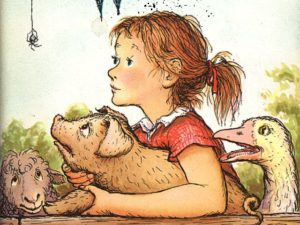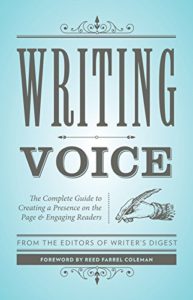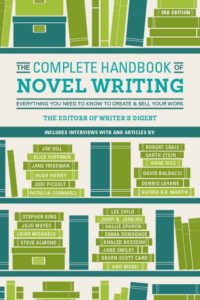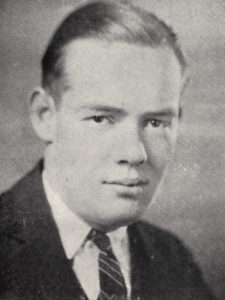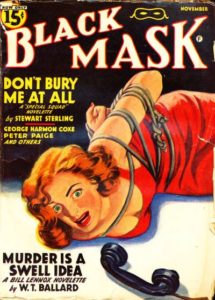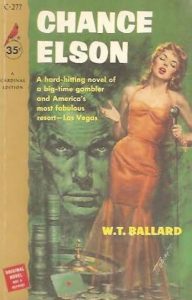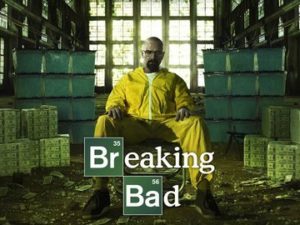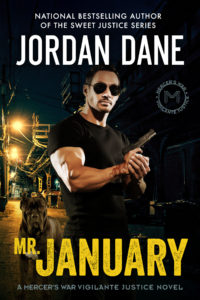Admin note: Strong language, content advisory.
By Elaine Viets
Another brave writer has sent in this untitled first page for a critique. We’ll start with the page, then my comments.
Chapter One (Monday)
“I hate men.” Faith sat on the bed cross-legged, Indian style, naked, dipping pineapple chunks and strawberries into chocolate fondue.
“Well, you do have valid reasons to feel that way.” Bill stretched out along the side of the bed opposite the fruit and chocolate, naked.
“I only want to hate men that I knew before I was 24, so I can include Troy. But the list keeps growing.“
“I want you.”
“You’re trying to distract me.”
“Obviously, doesn’t change that I want you.”
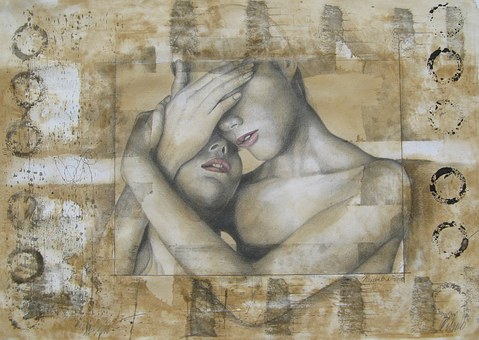 “Why are you the only man I can stand to be around?”
“Why are you the only man I can stand to be around?”
“Because I want you for who you are. Because I respect the hell out of you. Because I accept all that you are, and all that you aren’t. Because I don’t want to change a single thing. Because I don’t want to control you. Because I don’t need to have power over you to feel like a real man. And some other things that nicely pass the eye-test.”
“Because you are the only man I have ever felt comfortable with.”
 “Exactly what I said, just a bit more concisely. Pass me a strawberry. And you keep eating the pineapple.”
“Exactly what I said, just a bit more concisely. Pass me a strawberry. And you keep eating the pineapple.”
“Ha, you and your pineapple. That’s an old wives’ tale.”
“Not at all. I’ll let you taste my tongue next time.”
“I need to get to the office. Lots to do and I’m losing time here.”
“What? No session two? What the hell?”
“Not today. I owe you, rest up for a few days old man.”
“Fuck. OK. Go harass some men, make the world a better place, save some women, be the super-woman that you are. I will patiently await your blessing me with your presence again.” Bill stood up, picked-up the platter of fruit and fondue and turned toward the door. “Stay moist my friend.”
“Oh, you know I will. Someday I’ll understand how you make me wet and every other guy makes me grind my teeth.”
* * * * * * * * *******************************************************************
Monday
“Everyone, in the conference room please. Bring your creative and strategic minds and plenty of coffee. It’s time to change the world.” Faith skipped down the hall of her tiny set of offices and headed straight into their conference room, which was really just the largest of the tiny offices that she rented for her not-for-profit agency. “It’s time to rid the world of domestic violence. Are you WITH ME?”

ELAINE VIETS’S TAKE:
Two naked people are in bed eating chocolate fondue. This is a bold start to a novel. Many writers are shy about writing sex scenes, or in this case, postcoital scenes. Congratulations for a beginning that grabs readers by the (eye) balls.
This first page has so many possibilities, but many are unfulfilled.
Most important, who are these chocolate lovers? They seem lost, ghostly figures adrift on this mattress like shipwreck survivors on a raft.
All we know is they are naked.
What do they look like?
How old are they? What color is their hair? This is the one time we will truly know if characters are natural blonds. Is her hair tousled from sex and sleep? What about his? Does he even have hair, or is he all the way bare? We don’t know.
They’re both wearing birthday suits. What color is their skin: flour white, deep chocolate, caramel? Are they fit and tan? Pale and flabby? Wrinkled? Or well-nourished and well-developed, as the pathologists say?
What about the lovers’ relationship: Is this a long-term romance? Is it a romance at all? Are they married or single? This appears to be a passionless encounter. Is this true? If there’s heat, we need to know it. If love is dying, we need that too.
Where are we? We know it’s Monday, but what month? What’s the weather? Is it a sunny morning? A chilly afternoon? Is the day as hot as the potential scene? And what about the room? Is this a poorly furnished apartment? A luxurious home? Again, that mattress is floating in space.
The scene is supposed to be sexy, but there’s a strong ick factor. Bill says, “I’ll let you taste my tongue next time.” No, thanks.
Why does Faith hate Troy? Give us a hint: did he beat her, abandon her, or betray her? A word or two would ratchet up the tension.
“I want you.” Bill says this twice. Are these three words said with a sensual smile, or simply a demand? Does Bill love Faith, is he obsessed with her, or does he just want more sex? What actions go with those words? Show us what he’s doing. Show us her reactions: Does she love Bill? Is she bored with him?
What’s he doing with that fruit while they’re talking? Is Bill still eating strawberries? Dipping them? Dripping chocolate on her body? Painting it on his? Does she want him to do that? How was the sex for him? Is he exhausted? Exhilarated? Satisfied? Or was it just a routine roll in the hay?
Bill says he wants her, but is there any physical evidence? Is he fully erect? Does he reach for her? In this version, he’s all talk. Is that intentional?
POV: What’s the point of view here? It needs to be stronger.
Fix that misplaced naked. This sentence reads better as: Bill stretched out naked along the side of the bed opposite the fruit and chocolate. Otherwise, it sounds like the fruit and chocolate are naked.
What old wives’ tale about pineapple?
The dialogue starts out interesting, but slips in to self-help cliches. Bill says, “Because I want you for who you are. Because I respect the hell out of you. Because I accept all that you are, and all that you aren’t. Because I don’t want to change a single thing. Because I don’t want to control you. Because I don’t need to have power over you to feel like a real man. And some other things that nicely pass the eye-test.”
Does he mean that? Or is he being ironic? We can’t tell.
The scene at the office is confusing: We don’t know it’s Faith talking until four sentences into the paragraph. Set the scene first, please. Tell us the time of day.
Now that we’re naked – what are we doing? What kind of story is this? What are we reading? Is this a mystery? A thriller? Crime fiction or adult fiction? A line or two, a little foreshadowing, can answer this questions: “Faith wanted rid of domestic abusers, and she knew the best way was to eliminate the men who hurt those women . . .” “Faith knew the best solution for domestic abusers was to stash them six feet under.” You can come up with better examples, but you know what I mean.
You’ve got the start of a fascinating first page here, Anonymous. Now make it live up to that potential.
What do you think, TKZers? Feel free to add your criticism – constructive criticism only, please. We writers have tender feelings.
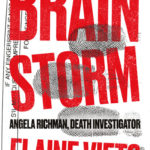 Elaine Viets is the author of the critically acclaimed Brain Storm, an Angela Richman, Death Investigator mystery. “Brain Storm has everything I love in crime fiction – complexity, intelligence, pretzel-plotting, and a touch of dark humor.”– PJ Parrish, New York Times bestselling author of She’s Not There and the award-winning Louis Kincaid series.
Elaine Viets is the author of the critically acclaimed Brain Storm, an Angela Richman, Death Investigator mystery. “Brain Storm has everything I love in crime fiction – complexity, intelligence, pretzel-plotting, and a touch of dark humor.”– PJ Parrish, New York Times bestselling author of She’s Not There and the award-winning Louis Kincaid series.
Brain Storm is an e-book, a trade paperback and audio book. Buy it here: http://tinyurl.com/hr7b9hn



